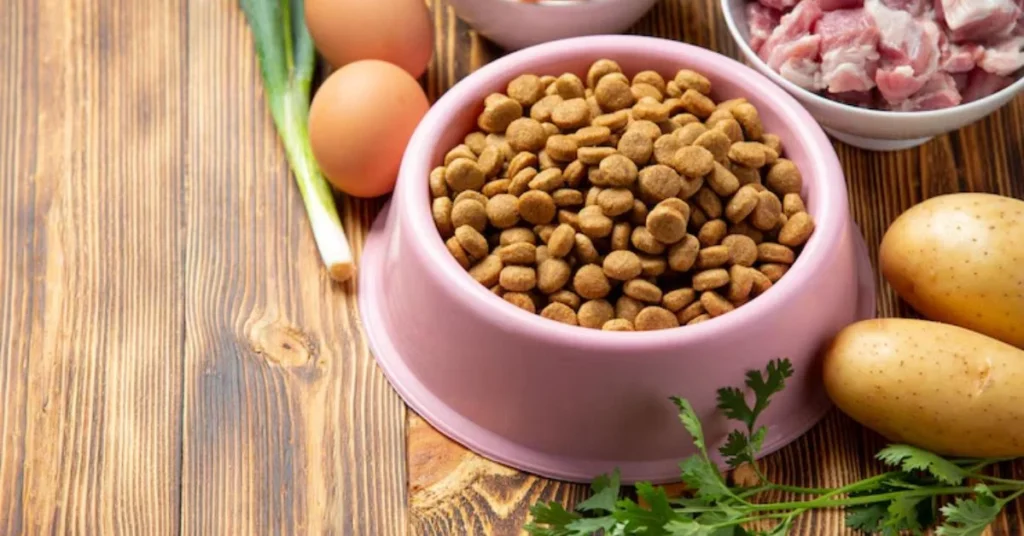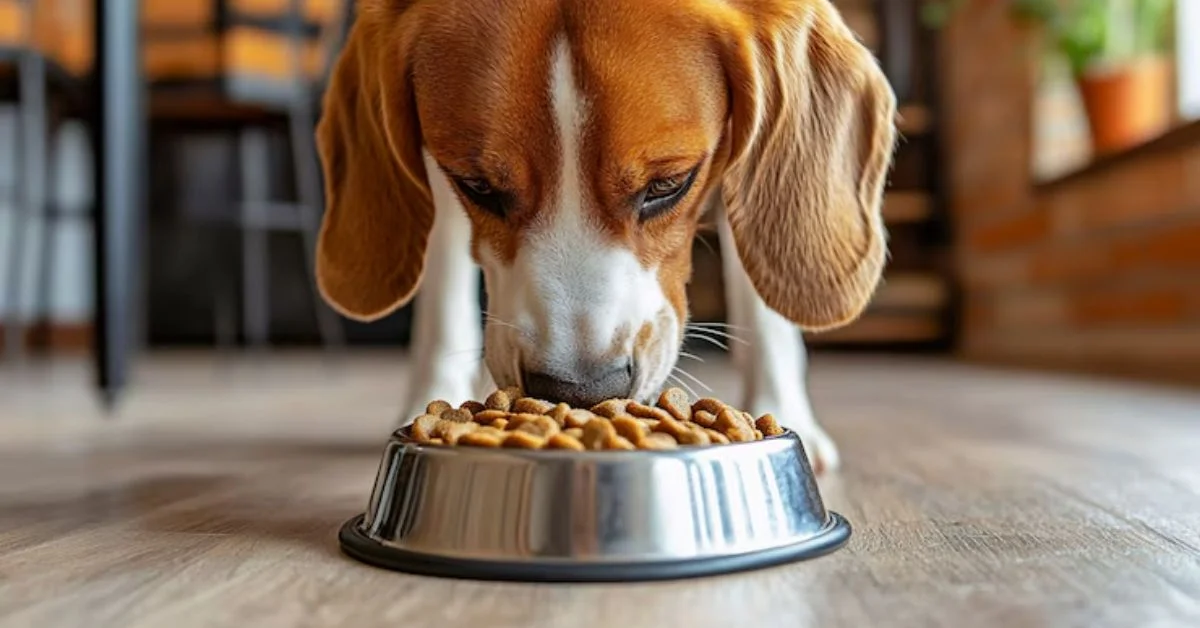Few breeds embody strength and grace like the Rhodesian Ridgeback. Bred in southern Africa to hunt lions and protect property, Ridgebacks are muscular, agile, and fiercely intelligent. Yet beneath that tough exterior lies a sensitive digestive system and a dog that requires a tailored diet to thrive. If you’re searching for clear, trustworthy, and nuanced guidance on Ridgeback food, you’re not alone.
In the first hundred words: What should you feed a Ridgeback? You should feed them a protein-rich, balanced diet, ideally tailored to their activity level, age, and sensitivities. While they’re known for resilience, their gut doesn’t always match their grit. From managing allergies to avoiding obesity, the right food can shape their lifespan and quality of life.
This article breaks down the essentials of feeding a Ridgeback Food—from puppyhood to senior years—while offering insights into evolving dietary trends, common misconceptions, and the human-grade food movement sweeping the dog food industry.
Understanding the Ridgeback’s Unique Nutritional Needs
Rhodesian Ridgebacks are athletic, deep-chested dogs known for stamina. Their ancestral diet included raw meat, offal, and whatever their human companions could spare. Today’s domesticated Ridgebacks, however, need a more calculated approach.
Key Dietary Priorities:
- High Protein Content
Ridgebacks thrive on protein-rich diets (around 25–30% protein). This supports their lean muscle mass and fuels their high-energy activities. - Moderate Fat
Healthy fats—especially Omega-3s—support joint health and coat quality. Avoid excessive fat that leads to weight gain. - Low to Moderate Carbohydrates
While not strictly carnivorous, Ridgeback Food don’t do well with high-carb, grain-heavy kibble. Complex carbs like sweet potatoes or lentils are preferred over corn or wheat. - Micronutrients and Fiber
Zinc, copper, vitamin E, and antioxidants are essential. A small amount of fiber helps maintain gut health without contributing to bloating or gas.
The Ridgeback’s Gut: Tough Dog, Sensitive Stomach
Though robust in physique,Ridgeback Food often have delicate digestion. Many owners report issues like loose stools, food allergies, and intolerances. Beef, chicken, and dairy rank among the most common allergens.
Common Digestive Issues:
- Food Sensitivities: Skin irritation, ear infections, or chronic itching may indicate a sensitivity to ingredients.
- Bloat (Gastric Dilatation-Volvulus): Ridgeback Food are deep-chested and at risk. Small, frequent meals and slow-feed bowls can help prevent this.
- Loose Stools: Often a result of low-quality kibble or abrupt diet changes.
Veterinarians now recommend limited-ingredient diets (LIDs) or hydrolyzed protein foods for sensitive Ridgebacks. New studies suggest gut health directly affects mood and behavior, making proper nutrition all the more critical.

Puppy to Senior: Ridgeback Diets by Life Stage
Feeding a Ridgeback Food is not a one-size-fits-all process. Nutritional needs evolve with age, and tailoring food to each life stage ensures longevity and vitality.
Ridgeback Puppies (0–12 Months)
Growth is rapid and appetite is high, but overfeeding leads to joint issues later. Choose a large-breed puppy formula rich in DHA and calcium, but not overloaded with calories.
- Feed 3–4 small meals per day
- Avoid high-fat treats
- Introduce probiotics early for gut flora support
Adult Ridgebacks (1–6 Years)
These years are the peak of activity. Focus on high-protein, joint-supporting food that fuels endurance and maintains lean mass.
- Two meals daily
- Ideal calorie range: 1,400–2,000 kcal/day depending on activity level
- Watch for food boredom—rotate proteins every few months
Senior Ridgebacks (7+ Years)
Muscle loss and joint stiffness become issues. Choose senior formulas with glucosamine, chondroitin, and easily digestible protein sources like turkey or fish.
- Reduced fat, higher fiber
- Antioxidants to combat cellular aging
- Smaller, softer kibble if dental wear is present
Dry, Wet, Raw or Fresh? Weighing Your Options
There’s no universal answer to what format of dog food is “best.” However, certain types suit Ridgeback Food better based on their temperament and physiology.
Dry Kibble
- Pros: Affordable, easy to store, dental benefits
- Cons: Often over-processed, may trigger allergies
- Tip: Choose grain-free, with meat as the first ingredient
Wet Food
- Pros: Palatable, hydrating, easy to chew
- Cons: Short shelf life, expensive long-term
- Tip: Use as a topper to enhance appetite or hydration
Raw Diets (BARF)
- Pros: Mirrors ancestral diet, supports lean muscle
- Cons: Bacterial risks, requires strict balance
- Tip: Consult a canine nutritionist before switching
Fresh Human-Grade Food
- Pros: Balanced, traceable ingredients, tailored portions
- Cons: Subscription cost, fridge space
- Tip: Look for AAFCO-certified brands
Ridgeback Food respond well to rotational feeding—alternating formats to provide variety, avoid intolerances, and stimulate appetite.
Superfoods and Supplements: What Works for Ridgebacks?
The right supplement can turn a good diet into a great one, especially for a breed with high physical demand and joint vulnerability.
Useful Additions:
- Fish Oil (Omega-3): Reduces inflammation, supports brain and coat
- Probiotics: Enhances digestion, immune defense
- Glucosamine & Chondroitin: Joint support for active dogs
- Pumpkin & Psyllium Husk: Natural fiber sources for better stool consistency
- Blueberries & Spinach: Antioxidant-rich snacks with cognitive benefits
Avoid over-supplementation, which can disrupt natural nutrient absorption. Supplements should always align with your dog’s specific needs—not just trends.
Common Feeding Mistakes to Avoid
Even well-meaning Ridgeback owners can stumble when it comes to feeding. These mistakes can lead to chronic health issues.
- Overfeeding – Ridgebacks gain weight easily and don’t always show it until joints suffer.
- Skipping Hydration – Some kibble-fed Ridgebacks drink insufficient water, leading to dehydration.
- Sudden Diet Changes – Abrupt switches can upset gut bacteria. Transition over 7–10 days.
- Ignoring Labels – Always check the first five ingredients. If corn or by-products dominate, look elsewhere.
- Excessive Treats – Treats should not exceed 10% of daily intake. Use training snacks sparingly.
How Feeding Impacts Behavior
The connection between diet and behavior is increasingly evident. Some Ridgebacks exhibit anxiety or aggression when fed poor-quality food lacking in amino acids and B-vitamins.
Recent nutritional behavior studies show:
- High-carb diets can contribute to hyperactivity and mood swings
- Omega-3 rich diets improve trainability and focus
- Balanced gut flora leads to more predictable bowel habits—and even emotional stability
If your Ridgeback is suddenly reactive, consider evaluating their food before turning to behavioral interventions.
Ethical Feeding: Sustainability and Ridgeback Food
As awareness grows about pet food’s environmental impact, many Ridgeback owners are making conscious choices.
- Sustainable proteins like insect-based kibble are emerging
- Local sourcing reduces carbon footprints
- Recyclable packaging is a growing standard among premium brands
Feeding a large dog sustainably is challenging but not impossible. Brands like Open Farm and The Honest Kitchen are leaning into transparency and ethics without sacrificing quality.
Conclusion: Fueling the Spirit of a Ridgeback
Feeding a Ridgeback isn’t just about filling a bowl—it’s about honoring the breed’s physical demands, digestive sensitivity, and emotional intelligence. A dog so deeply intertwined with strength and loyalty deserves food that matches its legacy.
Whether you opt for raw, kibble, or fresh food, the focus should be balance, variety, and transparency. Keep an eye on ingredients, rotate wisely, and respond to your dog’s unique signs. Because in the end, the right food doesn’t just nourish a Ridgeback—it empowers them to thrive.
FAQs
1. What is the best dog food for a Ridgeback?
The best dog food for a Ridgeback is a high-protein, moderate-fat formula with limited ingredients. Look for named meat proteins (like lamb or salmon) and avoid fillers like corn and soy.
2. How much should a Ridgeback eat daily?
Adult Ridgebacks typically need 1,400–2,000 calories per day, depending on activity level. Puppies and active adults may require more, while seniors need less.
3. Can Ridgebacks eat raw food?
Yes, many Ridgebacks thrive on raw diets, but these must be balanced and handled hygienically. Consult a veterinary nutritionist for proper formulation.
4. Are Ridgebacks prone to food allergies?
Yes, they can be. Common allergens include beef, chicken, wheat, and dairy. Signs include itching, ear infections, and soft stools.
5. What treats are safe for Ridgebacks?
Safe treats include dehydrated meat, sweet potato chews, and blueberries. Avoid treats with artificial coloring, sugar, or excessive grains.
For more information, click here.









